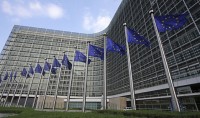Euro Parliament Toughens Stance on Surveillance Advertising
January 25, 2022
The European Parliament has added amendments to the EU’s proposed Digital Services Act that will further strengthen consumer protections and make it more difficult for Big Tech to continue tactics for surveillance advertising and microtargeting. The new amendments, advanced at a plenary session last week, are significant in part because they apply to digital services more broadly than the original DSA, which targets “gatekeeper” companies like Google and Facebook. Parliament had already endorsed a full ban on the profiling of minors as well as limiting the use of special category data for ad serving.
Big Tech’s efforts to weaken the draft legislation by excising a key provision for restricting “dark pattern” tactics was, according resoundingly defeated (524 to 157) in what TechCrunch calls “a definitive rejection of Big Tech’s lobbying against regulation.” Dark patterns are techniques programmed into the user experience to “trick” people into making unintended selections.

The Parliament’s amendments prohibit:
- Making a platform’s desired consent option more visually prominent than other choices.
- Bombarding users who deny consent with repeated requests to try to fatigue them into agreeing.
- Prompting users to change settings they’ve already selected.
- Ignoring users’ automated opt-outs by continuing to request consent.
- Designing the UX to make it “significantly more cumbersome” to end service versus signing up.
Among the amendments that passed during the vote was one banning UX designs that essentially force consent by denying platform access to users who refuse to share their personal data, stipulating they be offered “other fair and reasonable options” for participation.
Another pair of amendments essentially duplicated the wider group provisions that were already in the DMA, including a ban against profiling minors for advertising purposes and the use of sensitive data (including race or ethnicity, religious or political affiliation, sexual identity, and health information) for behavioral targeting.
MEP Alexandra Geese, who supports the position of the Tracking-Free Ads Coalition, told TechCrunch the new proposals “could usher in a change of the whole business model of the Internet — away from surveillance advertising and towards contextual advertising.”
Bloomberg reports the changes “could go into effect as early as 2023” as part of the pan-EU DSA, sweeping rules that include making algorithm information available to researchers, self-reporting requirements, and streamlined notice-and-takedown procedures. Bloomberg notes that the amendments face “tough negotiations due to begin Jan. 31 with EU member states and the commission, neither of which proposed such strict measures on tech companies. Large companies that violate the rules face fines of as much as 6 percent of their global sales.”
On a related note, TechCrunch reports that the European Union’s lead privacy and data protection regulator is urging policymakers “to strengthen proposed ‘transparency’ rules for political ads — calling instead for meaningful limits that would fully ban microtargeting for political purposes.”

No Comments Yet
You can be the first to comment!
Sorry, comments for this entry are closed at this time.